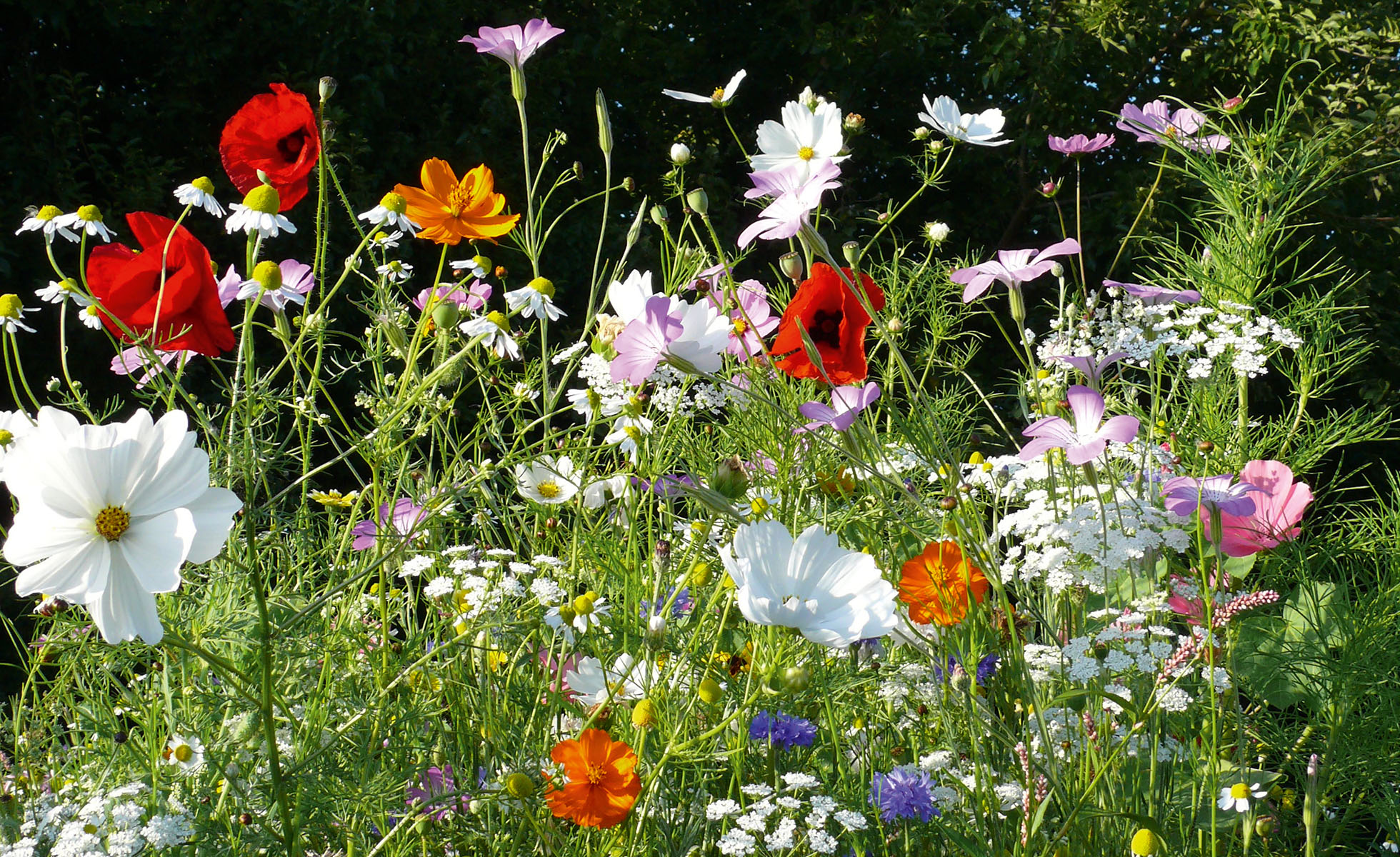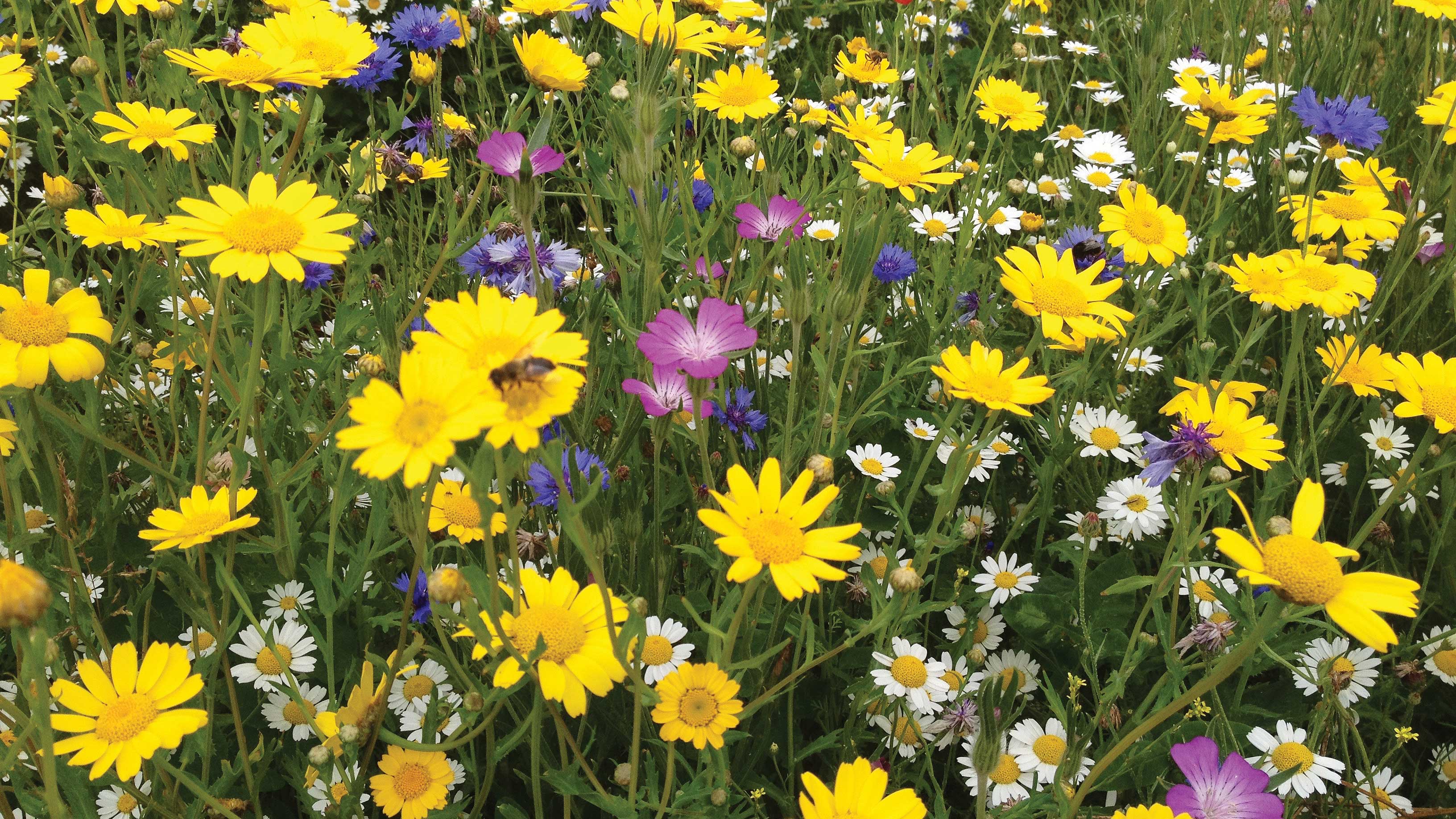Garden experts weigh in on new ban that could signal the end of artificial grass
The Chelsea flower show hit the news this week announcing its ban of artificial grass. We look at why so many experts are calling for an end to this familiar faux foliage


Last week the Royal Horticultural Society (RHS) announced it has banned the use of artificial grass at its annual Chelsea Flower Show. The show which starts tomorrow (Tuesday May 24th) is a key event in the British gardening event calendar and is known for highlighting the very best in outdoor design.
Following the show's plans to ban plastic grass that were set in motion last year, the announcement didn't come as a surprise but highlights an ongoing war between ecologists and a growing artificial grass industry.
Has this alternative garden landscaping idea seen its time in the sun? We spoke to garden and organic-living experts about why they welcome this move, but first, the RHS themselves explain the decision.
Why has the RHS banned plastic grass at the Chelsea Flower show?
Dr. Mark Gush, Head of Environmental Horticulture for the RHS, explains the reasons behind the ban citing some obvious environmental impacts to start: 'Plastic grass is bad for the environment for many reasons. Climate change is caused by too many greenhouse gasses in the air (such as carbon dioxide), and plastic grass contributes to this.
'Fossil fuels are used to make it, and it is also hard to get rid of – the fake grass usually has to go in the bin when it is worn out and ends up in landfill.'
And the negative impacts of faux lawn don't just come from what it's made from. It's often installed in place of living grass which carries many positives.
Gush continues: 'Alternatively, real grass lawns give lots of benefits for the environment, including absorbing carbon dioxide, producing oxygen, cooling the air, and creating a home for wildlife – especially insects. Natural grass and flowers are part of a renewable cycle, so cuttings can be used to make compost, adding nutrients back into the soil.'
Get small space home decor ideas, celeb inspiration, DIY tips and more, straight to your inbox!
For those who still aren't convinced how plastic grass can lead to a sterile, lifeless garden, the RHS explains further ways it turns your garden into a hostile environment, not just for wildlife but for humans, too:
- Plastic grass can become extremely hot;
- It can contaminate the soil and shed microplastics into the environment which are harmful to living beings;
- Heat and soil contamination harm earthworms, who are vital for a healthy garden;
- It can make flooding worse as it doesn't provide an absorbant surface to regulate rainfall.

Support for the ban
Little of this is new information (the RHS actually banned sale of plastic grass at their shows in 2018 and use of it at their shows in 2021), yet the popularity of artificial grass seems unhindered in recent years. According to Google Trends, searches for artificial grass increased 185% month on month in May 2020, coinciding with the many gardening projects people undertook in lockdown.
However, the RHS is not alone in its rally against the faux greenery. Petitions to the UK Government have increased in recent months, and retailers in the garden and lifestyle spheres back the ban.
Marcus Eyles, Horticultural Director at Dobbies, said: 'At Dobbies we’re committed to sustainable gardening, and we have a focus on encouraging beneficial wildlife and insects into gardens. We offer a range of wildflower plants and seeds, and we have just launched a new wildflower turf which we will be showcasing at our RHS Chelsea Flower Show ‘green sanctuary’ garden.'
'We support the RHS’ decision to ban artificial grass – we believe it’s important for nature to have a home in our gardens. We do currently stock a small amount of artificial grass, in a limited number of stores, but as part of our sustainability commitment, this product will be delisted going forward.'
The ban was also applauded by a spokesperson for organic skincare brand Weleda who are currently emphasizing the importance of soil health as part of their Save Earth's Skin campaign. When asked about plastic grass they said: 'In effect, it seals in that area of soil like concrete, and microorganisms or bugs in the soil can no longer come to the surface to draw down organic matter.'
'Natural grass on the other hand is a living breathing plant layer, which insects like miner bees or beetles can penetrate the turf, and myriad organisms in the soil beneath the grass can still thrive.'

So if you pass on the faux grass, is there anything else you can do to increase your lawn's benefits to the planet?
Gush has some final tips for eco-conscious gardeners: 'We suggest people look at the many habitats their natural lawns can provide, for example by leaving areas to grow long and flowers to grow up through the turf, they will be providing food for pollinators like bees and butterflies.'
'We encourage everyone to use real grass and flowers in their gardens for the many benefits and enjoyment they provide us and the natural world.'
And if you don't want the maintenance of a lawn and now realise artificial grass is not the no-maintenance option sellers pitch it as, check out our alternatives to grass.

Lindsey is Editor of Realhomes.com and Editor in Chief for Home Ecommerce at Future. She is here to give you aspirational, yet attainable ideas for your home and works with her team to help you get the best buys, too. She has written about homes and interiors for the best part of a decade for brands including Homes & Gardens, Ideal Home and Gardeningetc and isn't afraid to take the inspiration she finds at work into her own space – a Victorian terrace which she has been (slowly) remodelling for the last eight years. She is happiest sipping a cup of tea with a cat on her lap (if only she had a cat).